Related Research Articles
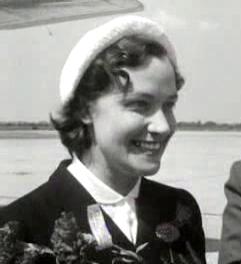
Kathleen Mary Ferrier was an English contralto singer who achieved an international reputation as a stage, concert and recording artist, with a repertoire extending from folksong and popular ballads to the classical works of Bach, Brahms, Mahler and Elgar. Her death from cancer, at the height of her fame, was a shock to the musical world and particularly to the general public, which was kept in ignorance of the nature of her illness until after her death.

Dame Janet Abbott Baker is an English mezzo-soprano best known as an opera, concert, and lieder singer.
Birgit Finnilä is a Swedish contralto opera singer.
Muriel Lucy Brunskill was an English contralto of the mid-twentieth century. Her career included concert, operatic and recital performance from the early 1920s until the 1950s. She worked with many of the leading musicians of her day, including Sir Thomas Beecham, Albert Coates, Felix Weingartner and Sir Henry Wood.
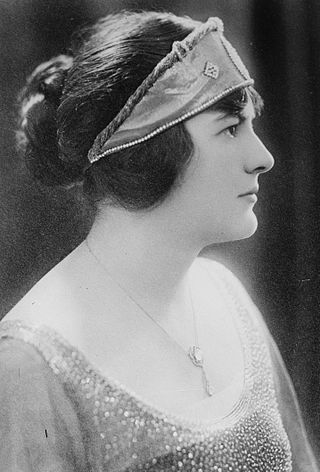
Astra Desmond was a British contralto of the early and middle twentieth century.

Gervase Henry Cary-Elwes, DL, better known as Gervase Elwes, was an English tenor of great distinction, who exercised a powerful influence over the development of English music from the early 1900s up until his death in 1921 due to a railroad accident in Boston at the height of his career.

Muriel Foster was an English contralto, excelling in oratorio. Grove's Dictionary describes her voice as "one of the most beautiful voices of her time".

Dame Sarah Patricia Connolly is an English mezzo-soprano. Although best known for her baroque and classical roles, Connolly has a wide-ranging repertoire which has included works by Wagner as well as various 20th-century composers. She was appointed a Commander of the Order of the British Empire (CBE) in the 2010 New Year Honours and a Dame Commander of the Order of the British Empire (DBE) in the 2017 Birthday Honours for services to music.

John Coates was a leading English tenor, who sang in opera and oratorio and on the concert platform. His repertoire ranged from Bach and Purcell to contemporary works, and embraced the major heldentenor roles in Richard Wagner's operas. For more than 40 years, with only a four-year interruption for military service during World War I, he overcame the limitations of a voice that was not naturally large by impressing listeners with his intense artistic expression, lively diction, musical versatility and memorable stage presence.

Harry Plunket Greene was an Irish baritone who was most famous in the formal concert and oratorio repertoire. He wrote and lectured on his art, and was active in the field of musical competitions and examinations. He also wrote Where the Bright Waters Meet (1924) a book about fly fishing.

Marie Brema was a British dramatic mezzo-soprano active in concert, operatic and oratorio roles during the last decade of the 19th and the first decade of the 20th centuries. She was the first British singer to appear at the Bayreuth Festspielhaus.
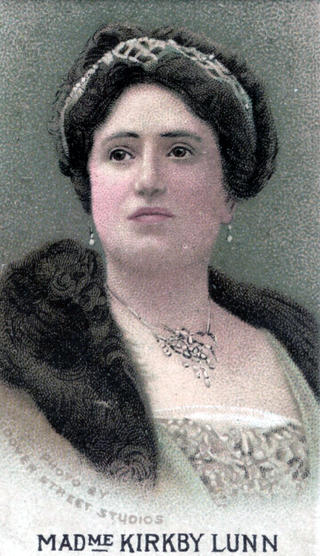
Louise Kirkby Lunn was an English coloratura contralto. Born into a working-class family in Manchester, She appeared in many French and Italian operas, but was best known as a Wagnerian. In addition to many appearances at the Royal Opera House, Covent Garden, London, she was seen frequently at the Metropolitan Opera, New York in the early years of the 20th century. She died in London, aged 56.

Frederic William Austin was an English baritone singer, a musical teacher and composer in the period 1905–30. He is perhaps best remembered for his arrangement of Johann Pepusch's music for a 1920 production of The Beggar's Opera by John Gay, and its sequel Polly in 1922; and for his popularization of the melody of the carol The Twelve Days of Christmas. Austin was the older brother of the composer Ernest Austin (1874–1947).
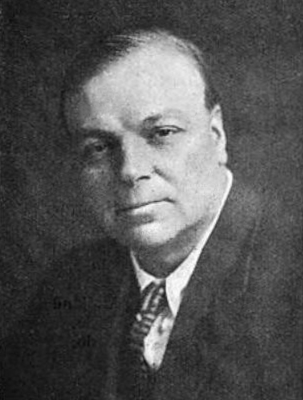
Harvey Grace (1874–1944) was an English musician: a composer, conductor, editor and teacher, best known for the 26 year period he worked as editor at The Musical Times.
"It isnae me" is a poem by Sally Holmes which was set to music by the English composer Edward Elgar in 1930.
”XTC” ("Ecstasy") is a song with words and music written by the English composer Edward Elgar in 1930. It was his last song, and written for the soprano Joan Elwes.
Charles James Mott was an English baritone.

Francis Clive Savill Carey, known as Clive Carey, was an English baritone, singing teacher, composer, opera producer and folk song collector.

Herbert Heyner was a noted English baritone. Heyner appeared in a handful of operas, and a number of broadcast operas, but his stage appearances were predominantly in oratorio and songs. He sang in some notable performances of Sir Edward Elgar's oratorios under the composer's baton. He sang in Britain, France, Germany, the United States and Canada, and he sang at The Proms 59 times between 1909 and 1937, in songs and operatic arias.
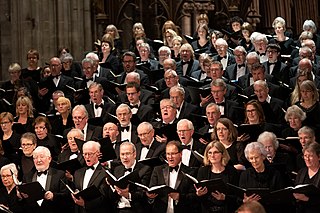
Worcester Festival Choral Society (WFCS) is an independent, SATB (soprano, alto, tenor, bass) choir of around 150 amateur singers that presents classical choral concerts at Worcester Cathedral, Worcester. The conductor is Samuel Hudson (Worcester Cathedral’s Director of Music) and the accompanist is Nicholas Freestone (Worcester Cathedral’s Assistant Director of Music). The Chairman is Susan White. The President is The Lord Bishop of Worcester and Senior Vice President is The Dean of Worcester.